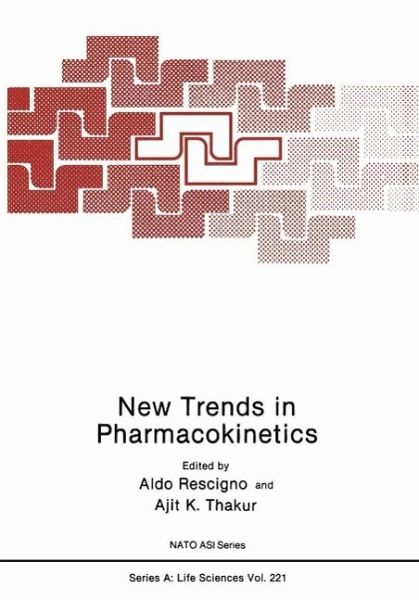
New Trends in Pharmacokinetics (eBook, PDF)
Versandkostenfrei!
Sofort per Download lieferbar
72,95 €
inkl. MwSt.
Weitere Ausgaben:

PAYBACK Punkte
36 °P sammeln!
The last decade or so has witnessed tremendous progress in methodology in the field of drug development in general and pharmacokinetics in particular. Clinical pharmacokinetics is using new tools for probing into the "black box" once being ac cessible only partly through experimental techniques and, mostly through mathemati cal and computer means. Development of computerized scanning, positron emission tomography (PET), stereoselectivity and other techniques are now enabling investi gators to have better pictures of the systems they are studying. Mathematical models through computer simulation...
The last decade or so has witnessed tremendous progress in methodology in the field of drug development in general and pharmacokinetics in particular. Clinical pharmacokinetics is using new tools for probing into the "black box" once being ac cessible only partly through experimental techniques and, mostly through mathemati cal and computer means. Development of computerized scanning, positron emission tomography (PET), stereoselectivity and other techniques are now enabling investi gators to have better pictures of the systems they are studying. Mathematical models through computer simulation and statistical estimation, mostly due to easy access be cause of inexpensive yet powerful personal computers, are enabling us to investigate ultrastructures and their functional connectivity in more detail. As a consequence, new hypotheses are being formed and tested in various related fields. In clinical pharmacokinetics, mostly due to mathematical modeling, more accurate interspecies scaling of pharmacokinetic parameters and dosimetry can be done now-a-days. The concept of "a human is a bigger rat" does not necessarily fly as a consequence. Pharmacokinetic concepts are becoming powerful tools in meaningful carcinogenic and toxic risk extrapolation of different chemicals in humans. New dose delivery designs are being formulated using pharmacokinetic techniques for different pharmaceutical compounds. Investigations continue in the academia, research institutions, pharmaceutical, biotechnological, and agricultural industries in developmental and physiological aspects of different chemicals for the benefit of mankind. The idea of a school on "New Trends in Pharmacokinetics", from which the present pUblication was made possible, took shape over almost a year.
Dieser Download kann aus rechtlichen Gründen nur mit Rechnungsadresse in A, B, BG, CY, CZ, D, DK, EW, E, FIN, F, GR, HR, H, IRL, I, LT, L, LR, M, NL, PL, P, R, S, SLO, SK ausgeliefert werden.












